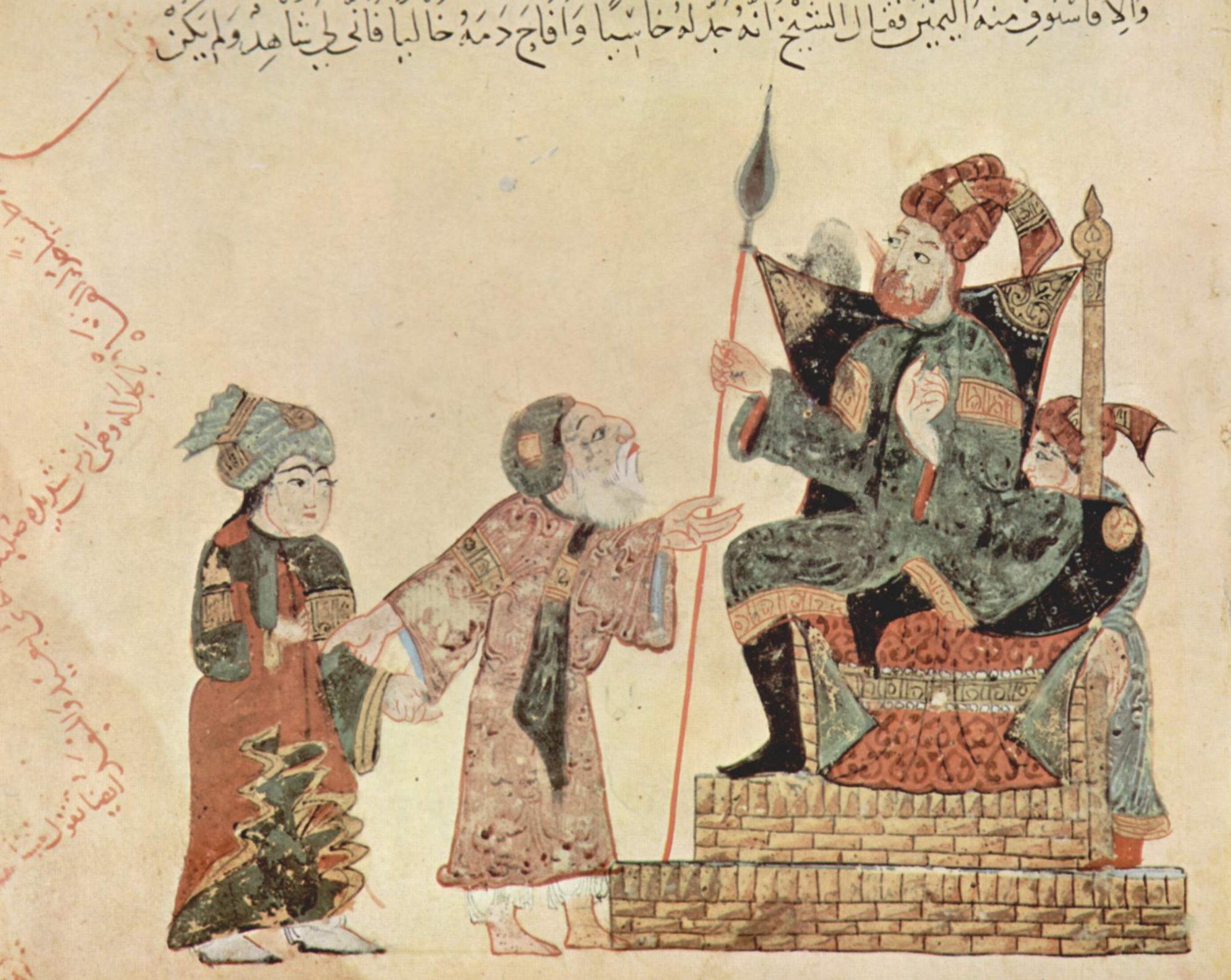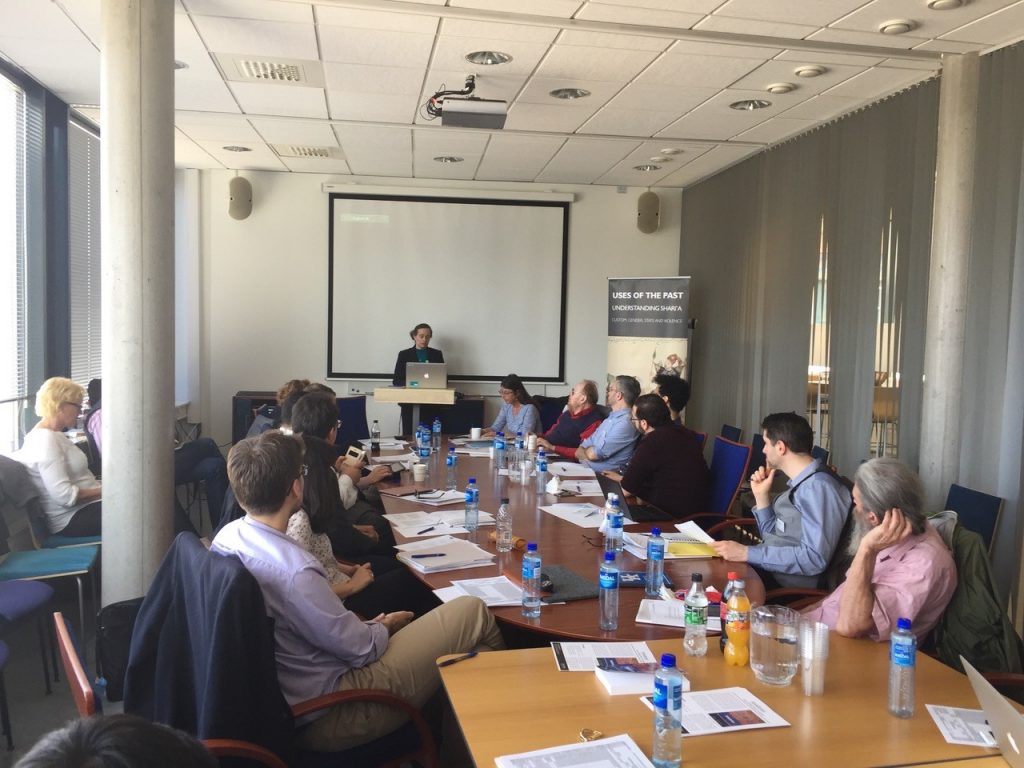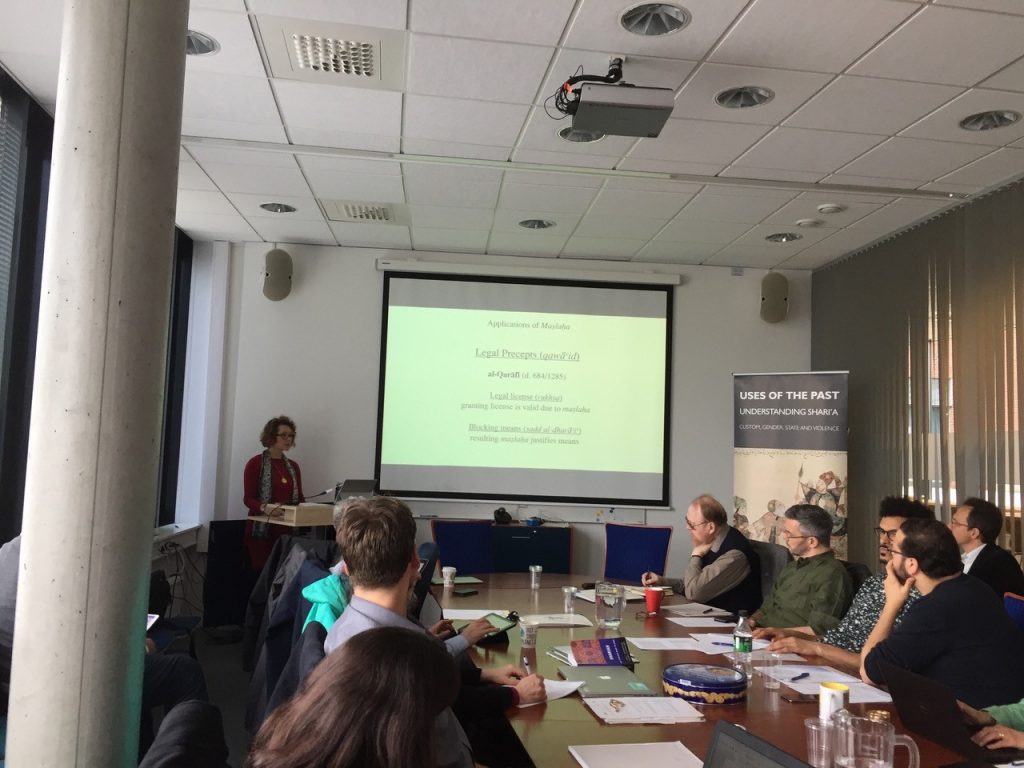In the last 200 years, a series of legal innovations have appeared in both Islamic legal thought and practice in the areas of marriage and divorce, and some of these were explored in this workshop. USPPIP researchers past and present gathered with other researchers to examine these issues on 23rd April 2019 at the Institute of Arab and Islamic Studies, Exeter. Dr Sejad Mekic, USPPIP fellow in Exeter spoke on the “delegation of divorce” (tafwīd al-ṭalāq) arguing for a more comprehensive employment of this legal mechanisms to give women increased agency in Muslim legal contexts. Dr Nijmi Edres, USPPIP fellow at Gottingen, and visiting USPPIP fellow in Exeter, examined divorce delegation in the context of Israeli Shari’a courts. Dr Mahmood Kooria, USPPIP fellow in Leiden, spoke fresh from the field about the prevalence of divorce amongst matrilineal Muslim communities of the Indian Ocean littoral. The first panel, was then a showcase of USPPIP research in the areas of marriage and divorce law.
In the second panel, Mr Mahmouf Afifi, doctoral student at Lancaster University, spoke on his doctoral research relating to interpretations of the Quranic verses which appear to relate to the husband’s right to discipline his wife. Dr Ayesha Choudry from Coventry University presented on how post-divorce maintenance payments to ex-wives has been, in general, rejected by judges in the Pakistani system – she argued that broader Islamic principles of justice and fairness required this to be looked at afresh. Finally Mr Muhammad Al-Marakaby rounded off the afternoon with an examination of fatwas and opinions from scholars in Egypt, tracing how divorce, whilst now having social stigma, was, in the pre-modern period, viewed as much less problematic.
The workshop marked the end of Dr Sejad Mekic’s period as USPPIP fellow in Exeter, before taking up a permanent post at the Cambridge Muslim College. We wish him every success in the future.












